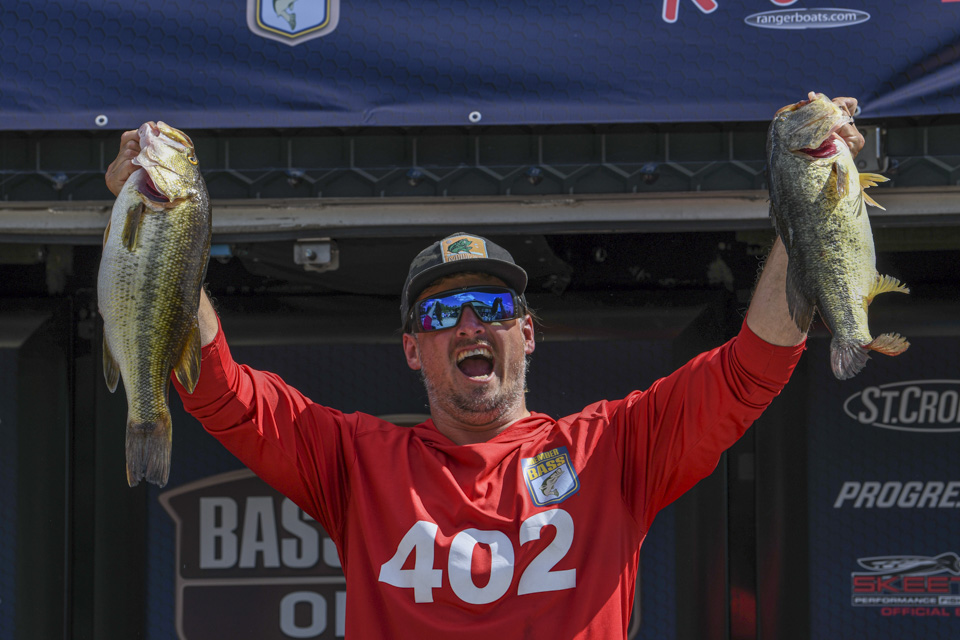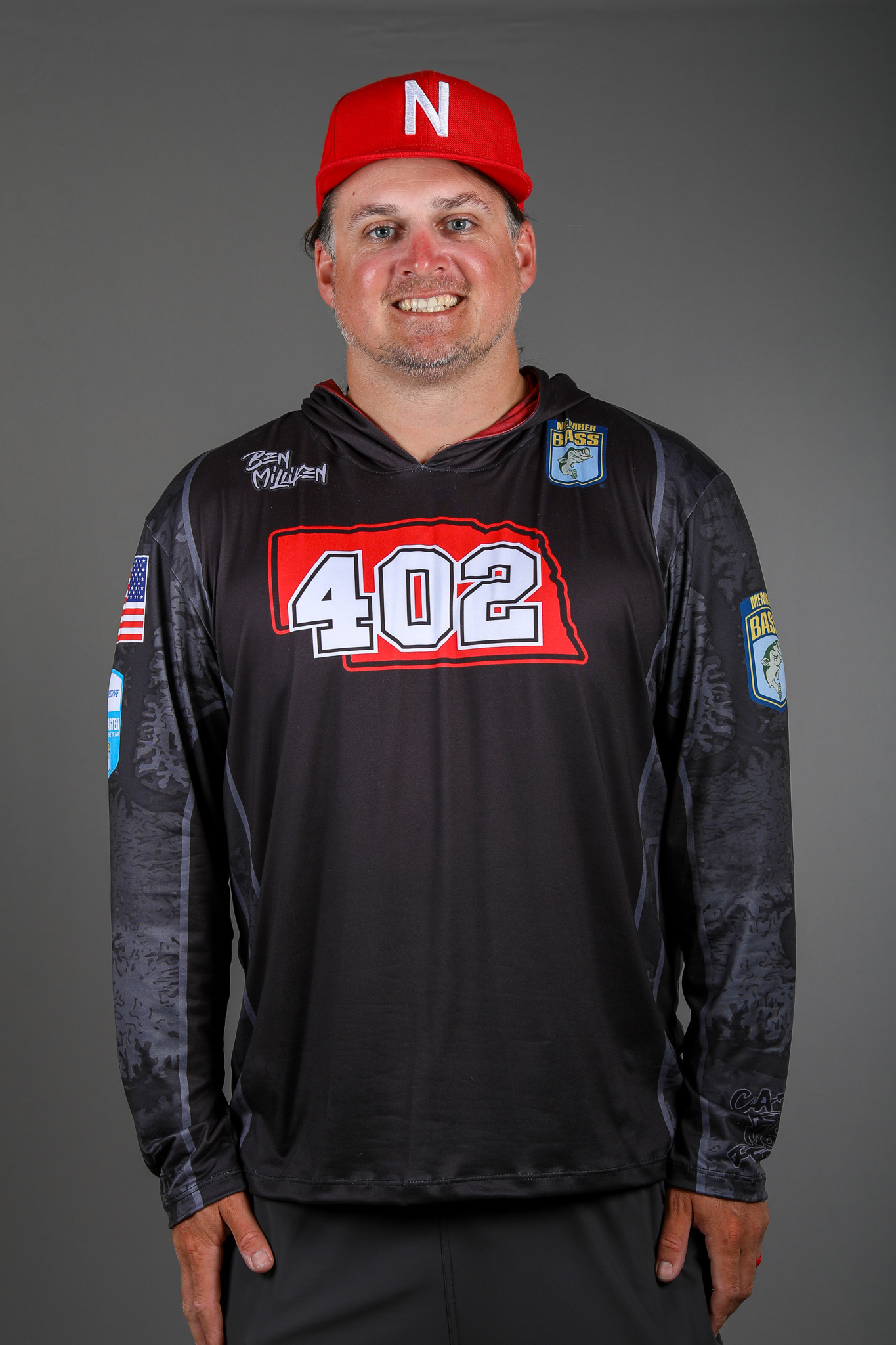
When Mike Iaconelli screamed “Never give up!” at the 2003 Bassmaster Classic on the Mississippi River Delta, I knew I no longer wanted to follow the sport as a fan or practice it as a hobby. As someone that had been obsessed with fishing since the age of 2, and who shortly after dove head first into competing in five different sports year-round throughout my youth — I knew these two passions were on a collision course.
Flash forward to 2013 — my fishing partner Kyle and I decided we were going to brave the winter storm in my hometown of Omaha, Neb., and make the six-hour drive south to attend the Bassmaster Classic at Grand Lake. The nearly impassable roads and few dollars in our bank accounts didn’t make this trip the most responsible decision, but we weren’t going to miss the Super Bowl of Bass Fishing coming so “close” to home.
The experience was beyond our expectations. As a fishing nerd who had never been to an outdoor event more impressive than the local “boat, sport and travel show,” opening the doors to the Bassmaster Classic Expo had my jaw on the floor. A few hours later I was watching the best anglers in the world drive their immaculate rigs through the weigh-in arena, with thousands of screaming fans that shared my same love for the sport. There was only one thought on my mind: “I must find a way to compete in this event.”
But how is an angler with a home state littered with man-made 100-acre mud holes going to even put himself in position to be adept enough to have a chance to qualify for the Bassmaster Classic? Never mind finding the time away from work and financial means to travel to these qualifying events. The answers to these questions are different for every aspiring tournament angler, and for me, they didn’t come easily. They never seemed to follow a linear, stair-stepped route.
The first tournament I fished was in high school, but my passion really began when I went to the University of Nebraska-Lincoln my freshman year. My friend Tony told me he was trying to grow the bass fishing team, and he signed me up to fish a college tournament. At this point, I loved bass fishing but had no perspective of the national level of competition in our sport.
I showed up to this prespawn, power-fishing dominated college event at Lake Dardanelle with the best equipment I could afford and a knowledge base rooted in bank fishing small reservoirs across the state. Needless to say, the three spinning combos and two boxes of random Walmart bargain-bin tackle didn’t quite get the job done. It was a cool experience but a very overwhelming, eye-opening moment. When I got back from that tournament I knew I had a serious decision to make regarding my future in competitive fishing. My choices were either never compete again and simply keep fishing as a hobby/passion, or go all-in to make sure that level of competitive embarrassment never happened again.
You guys know the choice I made. While I played baseball for two years at a community college and later went on to found the college bass fishing team at the University of Nebraska at Omaha, I fished 15 to 20 local tournaments annually and devoted every free minute to devouring as much fishing content as physically possible.
Once I graduated, I got a “real” 8-5, Monday through Friday job with my degree. Although I continued to fish local events, I quickly realized taking five to 10 weeks off work to fish regional AAA level tournaments, trying to qualify for the highest level of the sport, wasn’t financially feasible. It also would mean a quick exit route from my employer.
Thanks to my wife for gifting me a GoPro camera to film some of my fishing excursions. I quickly realized there was an interest on the YouTube platform from anglers hungry to view a more relatable fishing experience than the traditional 21-minute, highly produced fishing shows they’d been watching on TV for decades. I hit the ground running posting five to seven weekly videos on YouTube and Facebook, was able to quit my “real” job and have been grinding the last seven years to create fishing content as a full-time occupation.
Two years ago we decided to move our family to Texas, which has allowed me to fish year-round on some of the most diverse fisheries in our country. Although I had been winning the majority of local tournaments in the Nebraska area, I felt I had many techniques I wanted to sharpen up prior to making the leap to the Bassmaster Opens to compete against this phenomenal field of anglers.
These last two tournaments have been a culmination of putting myself in uncomfortable positions on the water. What I do with my YouTube is different from any other channel. I go out and make fishing VLOGS. I don’t do tip videos. I actually go out and break down fisheries and try to catch the biggest bass I can every day.
Most days begin around 3 a.m., I drive a couple hours to a lake and stay until dark. When I figure out the best area/pattern for the biggest bass on a body of water and catch a massive limit of bass, I have zero interest in staying to fish that bite day after day. I leave the lake immediately to try and learn a new bite at a new body of water, occasionally at the peril of my sanity. This is almost like fishing my own tournament every day.
For these Opens, the four and a half days of practice focusing on breaking down one body of water has almost been a relief for me. After each tournament day’s weigh-in has concluded in the afternoon, my camera guy likes to joke, “Well, what are we going to do with the rest of the day?”
To win the St. Croix Rods Bassmaster Open at Toledo Bend and qualify for the 2024 Academy Sports + Outdoors Bassmaster Classic at Grand Lake presented by Toyota was a dream come true for me. When I signed up for all nine Opens this year, I had no idea what to expect. I’m very confident in my angling aptitude, but I had never fished this level of competition. My fifth-place finish at Lake Eufaula calmed my nerves and any inhibitions of whether I belonged on this playing field, but a win at Toledo Bend was completely unexpected.
After building a large lead the first two days of the event, I knew I could likely seal the deal on Championship Saturday with a decent limit of bass. I’ll never forget the feeling late in the morning when I caught a 4-pound bass to round out my limit, and knew I had just qualified for the 2024 Bassmaster Classic.
I let out a scream to my flotilla of incredible fans and friends cheering me on, put the fish in the livewell and tears immediately poured out. My heart felt like it was in my throat. Everything had come full circle. The pond fisherman from Nebraska with a relentless passion and uncharted path, found his route to the Super Bowl of Bass Fishing.





